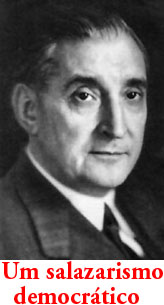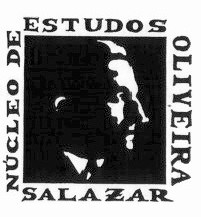2011/11/12
Fim do socialismo – 1ª parte

Novembro lembrar-nos-á para sempre duas datas que marcam a derrocada do socialismo “científico”: o derrube do muro de Berlim, em 1989, e da União Soviética, em 1991.
Podemos indagar e discutir as razões da queda de um regime que, no dia anterior, jurava durar para sempre, e talvez sejam várias. Mas, mais importante que isso é questionar a tremenda analogia existente entre a defunta URSS e a UE. A UE está podre, mas todos os políticos agarrados ao sistema garantem que está de boa saúde.
Afinal de contas falta fazer cair a 2ª parte do socialismo, na Europa Ocidental. Será Merckel a perestroika, ou devemos esperar outra?
A UE já tem a troika, só falta a perestroika.
E, tal como aconteceu com a defunta URSS e nações satélites, quando um sistema socialista, mesmo que seja a diesel, é derrubado, o mundo não acaba, a vida continua, com mais liberdade e independência.
Portanto, se acabar o euro e a UE, nem que seja só para alguns países, já sabem... não vale a pena chorar.
The 20th anniversary of the fall of the USSR offers an opportunity both to remember and to look ahead. The reasons for the USSR’s collapse are many, ranging from its mania for top-down economic control, to its oppression of its own people, to its efforts to hold an empire in Eastern Europe and Central Asia, to the courage and leadership of Russian dissidents and Western leaders. But standing above all of these causes was a truth that Ronald Reagan recognized clearly: while the Soviet Union looked strong, it was in reality weak. If the West stood up to it, and forced it to confront its own inability to feed and listen to its people, the flaws inherent in its tyrannical regime would be revealed.
The truth of Reagan’s vision became apparent in 1991. Since then, we have witnessed other tyrannies, seemingly solid, collapse in a matter of days: the sudden failure of the dictatorships of North Africa is only the most recent evidence that these regimes have no enduring strength. But in spite of this, the United States and the West are today enduring another of their periodic moments of concern about their future and worries about decline. The anniversary of the fall of the USSR gives us reason to look back at this triumph for American and Western leadership, and for the now-free peoples of the former Soviet Union. But it also gives us an opportunity to look at the victories of 1991 that have not yet been secured, and which are under threat as the U.S. pursues its ‘reset’ policy with Russia that is back-sliding rapidly into autocracy.
http://www.heritage.org/Events/2011/11/Fall-of-the-USSR
Podemos indagar e discutir as razões da queda de um regime que, no dia anterior, jurava durar para sempre, e talvez sejam várias. Mas, mais importante que isso é questionar a tremenda analogia existente entre a defunta URSS e a UE. A UE está podre, mas todos os políticos agarrados ao sistema garantem que está de boa saúde.
Afinal de contas falta fazer cair a 2ª parte do socialismo, na Europa Ocidental. Será Merckel a perestroika, ou devemos esperar outra?
A UE já tem a troika, só falta a perestroika.
E, tal como aconteceu com a defunta URSS e nações satélites, quando um sistema socialista, mesmo que seja a diesel, é derrubado, o mundo não acaba, a vida continua, com mais liberdade e independência.
Portanto, se acabar o euro e a UE, nem que seja só para alguns países, já sabem... não vale a pena chorar.
Legacies and Lessons from the 20th Anniversary of the Fall of the USSR
The 20th anniversary of the fall of the USSR offers an opportunity both to remember and to look ahead. The reasons for the USSR’s collapse are many, ranging from its mania for top-down economic control, to its oppression of its own people, to its efforts to hold an empire in Eastern Europe and Central Asia, to the courage and leadership of Russian dissidents and Western leaders. But standing above all of these causes was a truth that Ronald Reagan recognized clearly: while the Soviet Union looked strong, it was in reality weak. If the West stood up to it, and forced it to confront its own inability to feed and listen to its people, the flaws inherent in its tyrannical regime would be revealed.
The truth of Reagan’s vision became apparent in 1991. Since then, we have witnessed other tyrannies, seemingly solid, collapse in a matter of days: the sudden failure of the dictatorships of North Africa is only the most recent evidence that these regimes have no enduring strength. But in spite of this, the United States and the West are today enduring another of their periodic moments of concern about their future and worries about decline. The anniversary of the fall of the USSR gives us reason to look back at this triumph for American and Western leadership, and for the now-free peoples of the former Soviet Union. But it also gives us an opportunity to look at the victories of 1991 that have not yet been secured, and which are under threat as the U.S. pursues its ‘reset’ policy with Russia that is back-sliding rapidly into autocracy.
http://www.heritage.org/Events/2011/11/Fall-of-the-USSR
Etiquetas: Capitalismo, Em defesa do Ocidente, João Paulo II, O mundo não é perfeito, socialismo, União Europeia









